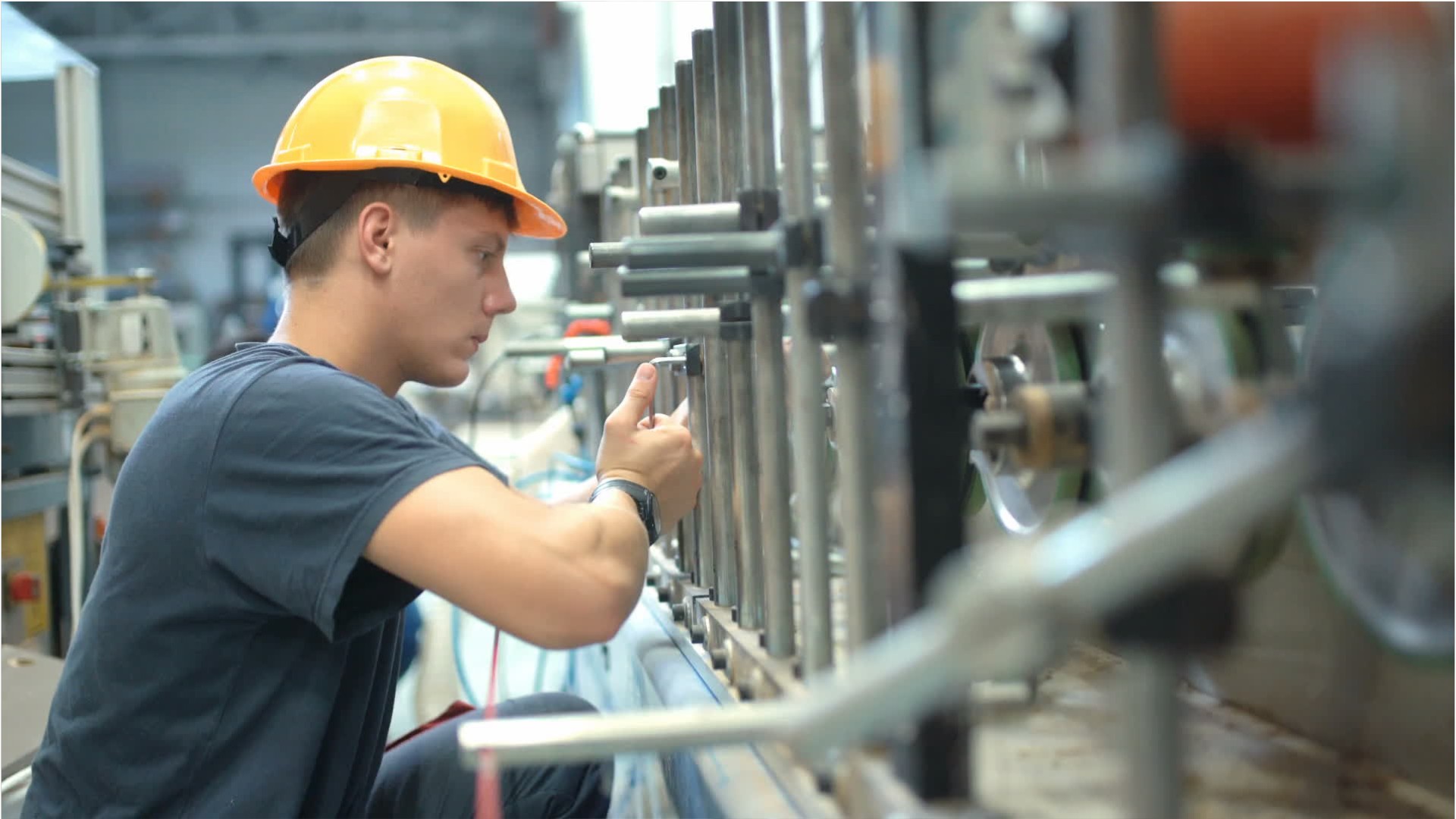Maintenance Workers, Machinery
Maintainer, Maintenance Mechanic, Maintenance Technician (Maintenance Tech), Maintenance Worker
 Select a military branch to see samples.
Select a military branch to see samples.
Advanced Fighter Aircraft Integrated Avionics; Aerospace Propulsion Craftsman, F100, F101, F110, F118, F119, F135, TF34 Jet Engines (A-10, B-1, B-2, F-15, F-16, F-22, F-35, U-2 aircraft); Aircraft Armament Systems Helper; Aircrew Egress Systems Apprentice; Electrical Power Production Helper; Heavy Aircraft Integrated Avionics; Missile And Space Facilities Craftsman; Mobility Force Aviator, KC-46 Boom Operator; Refuel/Bomber Aircraft Maintenance Helper, B-2; Tactical Aircraft Maintenance (5th Generation) Helper, F-22
AH-64 Attack Helicopter Repairer; Aircraft Electrician; Allied Trades Specialist; Aviation Maintenance Technician (Nonrated); CH-47 Helicopter Repairer/Aircrew Member; Indirect Fire Infantryman; M1 Abrams Tank System Maintainer; Prime Power Production Specialist; Senior Maintenance Supervisor; Tactical Power Generation Specialist
Aviation Maintenance Technician; Avionics Electrical Technician; Gunner's Mate; Machinery Technician; Marine Safety Specialist Engineer; Naval Engineering Specialty; Weapons Specialty
Air Traffic Control Communications Technician; Aircraft Maintenance Chief; Aviation RADAR Technician; Fixed-Wing Aircraft Airframe Mechanic, AV-8/TAV-8; Fixed-Wing Aircraft Flight Engineer, KC-130; Fixed-Wing Aircraft Power Plants Mechanic, F-402; Fixed-Wing Aircraft Safety Equipment Mechanic, KC-130/V-22; Helicopter Crew Chief, CH-53; Helicopter/Tiltrotor Dynamic Components Mechanic; Tiltrotor Airframe Mechanic, MV-22
57MM MK 110 Mod 0 Gun Mount Operator and Maintainer; Armament Weapons Support Equipment (ASWE) Maintenance Manager; Aviation Fuels Maintenance Technician; Construction Mechanic; Gas Turbine Mechanical Systems Maintainer; Landing Craft Air Cushion Engineer; Machinists Mate (Weapons); NAMTS Rigger/Weight Tester; Steam Plant Auxiliary Systems Maintainer; Support Equipment Tow Tractor Technician
No similar titles were found.
What they do:
Lubricate machinery, change parts, or perform other routine machinery maintenance.
On the job, you would:
- Dismantle machines and remove parts for repair, using hand tools, chain falls, jacks, cranes, or hoists.
- Reassemble machines after the completion of repair or maintenance work.
- Record production, repair, and machine maintenance information.
Knowledge
Engineering and Technology
- mechanical
- design
Manufactured or Agricultural Goods
- manufacture and distribution of products
Business
- management
Arts and Humanities
- English language
Skills
Basic Skills
- listening to others, not interrupting, and asking good questions
- reading work related information
Technical
- figuring out what is causing equipment, machines, wiring, or computer programs to not work
- planning and doing the basic maintenance on equipment
Abilities
Hand and Finger Use
- keep your arm or hand steady
- hold or move items with your hands
Ideas and Logic
- notice when problems happen
- make general rules or come up with answers from lots of detailed information
Personality
People interested in this work like activities that include practical, hands-on problems and solutions.
They do well at jobs that need:
- Attention to Detail
- Dependability
- Cautiousness
- Perseverance
- Stress Tolerance
- Integrity
Technology
You might use software like this on the job:
Enterprise resource planning ERP software
- Management information systems MIS
- SAP software
Presentation software
- Microsoft PowerPoint
Spreadsheet software
- Microsoft Excel
Education
Education: (rated 3 of 5)
certificate after high school or
high school diploma/GED
usually needed
high school diploma/GED
usually needed
Job Outlook
Below Average
New job opportunities are less likely in the future.
Explore More
- Electric Motor, Power Tool, & Related Repairers
- Grinding, Lapping, Polishing, & Buffing Machine Tool Setters, Operators, & Tenders, Metal & Plastic
- Industrial Machinery Mechanics
- Mobile Heavy Equipment Mechanics
- Multiple Machine Tool Setters, Operators, & Tenders, Metal & Plastic
You might like a career in one of these industries:
See more details at O*NET OnLine about Maintenance Workers, Machinery.





